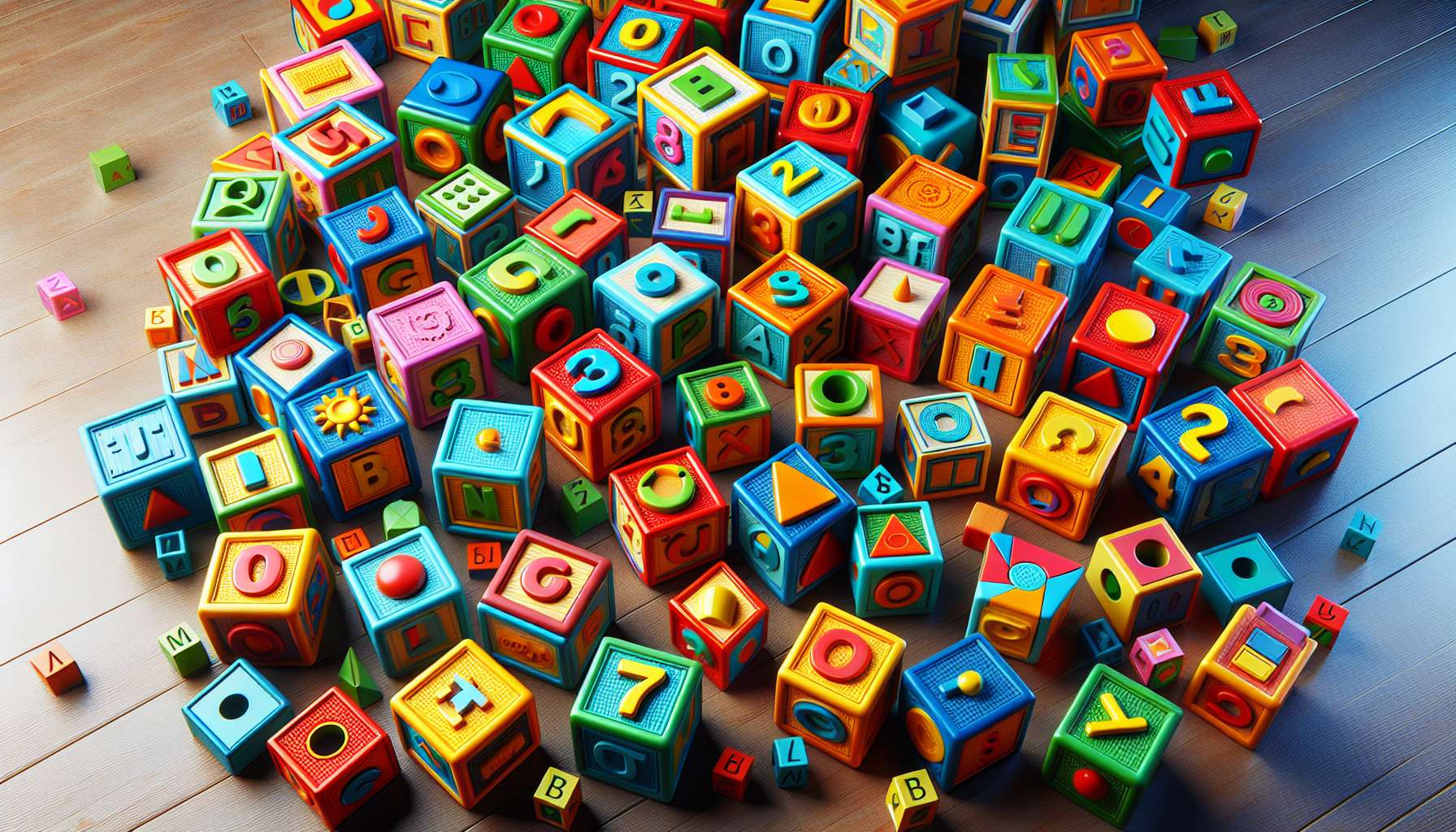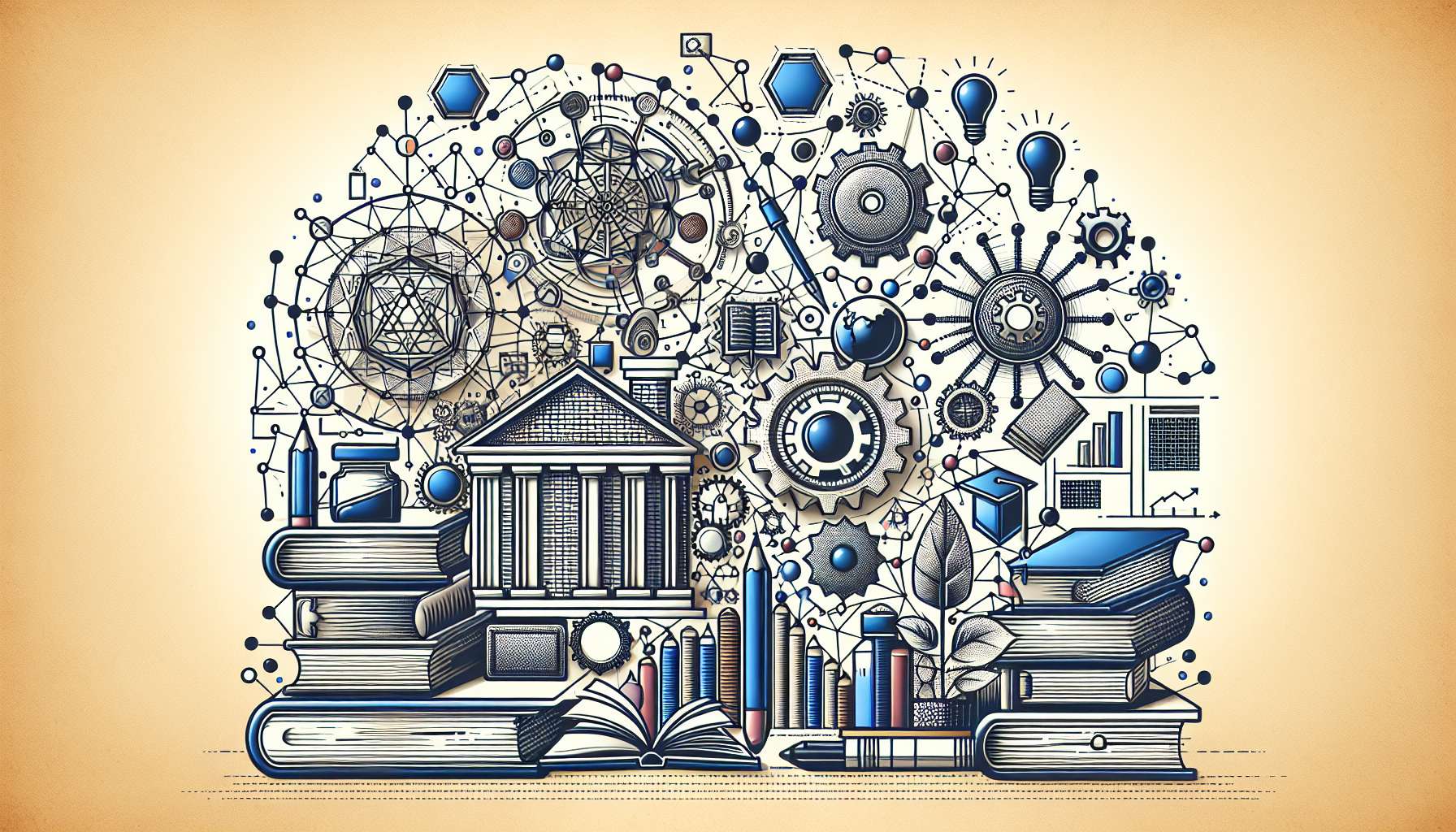Educational Building Blocks: The Foundation of Learning
When we think of education, we often envision classrooms, textbooks, teachers, and students. However, at the core of every educational experience lies a fundamental concept that serves as the building blocks of learning. These building blocks not only shape the way we acquire knowledge but also influence our cognitive development, problem-solving skills, and critical thinking abilities. In this article, we will delve deep into the world of educational building blocks, exploring their significance, impact, and potential for shaping the future of education.
The Role of Educational Building Blocks
At its essence, educational building blocks refer to the foundational concepts, skills, and knowledge that individuals need to acquire in order to progress in their learning journey. Just as a building needs a strong foundation to stand tall, education requires these fundamental blocks to ensure that students have a solid base on which to build their knowledge.
These building blocks encompass a wide range of subjects, including mathematics, language arts, science, social studies, and more. They serve as the groundwork for more advanced learning and are essential for students to develop a deeper understanding of complex topics.
Think of educational building blocks as the ABCs of learning without them, it would be challenging for students to grasp higher-level concepts and ideas. By mastering these foundational skills, students can unlock a world of possibilities and expand their intellectual horizons.
The Evolution of Educational Building Blocks
Over the years, the concept of educational building blocks has evolved to meet the changing needs of society and the demands of the modern world. What once may have consisted of basic reading, writing, and arithmetic skills has now expanded to include critical thinking, problem-solving, creativity, and digital literacy.
As technology continues to shape the way we live and work, educational building blocks have adapted to incorporate digital skills and technological know-how. Students are now expected to be proficient in using computers, navigating the internet, and leveraging various digital tools to enhance their learning experience.
Additionally, the emphasis on soft skills such as communication, collaboration, adaptability, and resilience has become increasingly important in the 21st-century classroom. These skills are considered essential building blocks for success in both academic and professional settings, as they enable individuals to navigate complex challenges and thrive in diverse environments.
The Impact of Educational Building Blocks
The significance of educational building blocks cannot be overstated, as they form the bedrock upon which all learning experiences are built. By mastering these foundational concepts, students not only acquire essential skills and knowledge but also develop the confidence and competence needed to tackle more advanced subjects.
Research has shown that a strong foundation in educational building blocks can lead to improved academic performance, higher graduation rates, and increased career opportunities. Students who excel in these fundamental areas are more likely to succeed in school and beyond, as they have the skills and knowledge needed to navigate challenges and achieve their goals.
Furthermore, educational building blocks play a crucial role in promoting equity and access in education. By ensuring that all students have a solid foundation in key subjects, schools can level the playing field and provide every child with the opportunity to succeed, regardless of their background or circumstances.
Case Studies: Implementing Educational Building Blocks in Practice
One of the best ways to understand the impact of educational building blocks is to explore real-life examples of how these concepts are implemented in educational settings. Let’s take a look at a few case studies that highlight the importance of building a strong foundation for learning:
Case Study 1: Early Literacy Intervention Program
In a study conducted in a low-income school district, researchers implemented an early literacy intervention program that focused on building foundational reading skills in kindergarten and first-grade students. The program included activities such as phonics instruction, sight word recognition, and reading comprehension exercises.
After one year of implementing the program, researchers found that students who participated in the intervention showed significant improvement in their reading abilities compared to their peers who did not receive the intervention. By focusing on building strong literacy skills early on, students were able to develop the necessary building blocks for future academic success.
Case Study 2: STEM Enrichment Program
In another case study, a school district implemented a STEM enrichment program that aimed to enhance students’ understanding of science, technology, engineering, and mathematics. The program included hands-on activities, project-based learning experiences, and opportunities for students to collaborate with industry professionals.
After participating in the program, students demonstrated a greater interest in STEM subjects, improved problem-solving skills, and a deeper understanding of complex scientific concepts. By providing students with the building blocks needed to succeed in STEM fields, the program helped to inspire a new generation of innovators and problem solvers.
Expert Opinions on Educational Building Blocks
To gain further insight into the importance of educational building blocks, we reached out to experts in the field of education. Here’s what they had to say about the role of foundational concepts in shaping the learning journey:
“Educational building blocks are essential for laying the groundwork for student success. By focusing on developing key skills and knowledge at an early age, we can empower students to achieve their full potential and become lifelong learners.” – Dr. Sarah Johnson, Education Specialist
“Incorporating educational building blocks into curriculum design is crucial for ensuring that students have the tools they need to thrive in a rapidly changing world. By equipping students with the foundational skills and knowledge they need to succeed, we can prepare them for future success.” – Prof. Michael Lee, Curriculum Developer
Common Misconceptions About Educational Building Blocks
Despite their importance, educational building blocks are often misunderstood or overlooked in education. Let’s address some common misconceptions about these foundational concepts:
Misconception 1: Educational building blocks are only for young children.
While it’s true that building a strong foundation in key subjects is crucial for young learners, educational building blocks are relevant at all ages and stages of education. Students of all levels can benefit from mastering foundational concepts and skills, as they provide the basis for more advanced learning.
Misconception 2: Educational building blocks are limited to traditional subjects.
While subjects like reading, writing, and math are often considered the core building blocks of education, the concept extends far beyond these traditional areas. Soft skills, digital literacy, and critical thinking are also essential building blocks that play a critical role in shaping students’ academic success and future prospects.
Conclusion: Building a Strong Foundation for Lifelong Learning
To wrap things up, educational building blocks are the cornerstone of learning, providing students with the essential skills and knowledge they need to succeed in school and beyond. By mastering these foundational concepts, students can unlock a world of opportunities and set themselves up for a lifetime of learning and growth.
As we continue to evolve and adapt to the changing demands of the modern world, it’s more important than ever to prioritize the development of educational building blocks in our educational systems. By equipping students with the tools they need to thrive, we can ensure that every child has the opportunity to reach their full potential and make a positive impact on the world.
Long story short, educational building blocks are not just the ABCs of learning they are the foundation upon which all educational experiences are built. By investing in these fundamental concepts, we can empower students to become lifelong learners, critical thinkers, and problem solvers who are prepared to take on the challenges of tomorrow. Let’s continue to prioritize the development of educational building blocks and pave the way for a brighter future for all learners.




